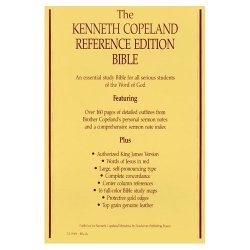
Synod condemns those . . .
III Who teach that Christ, by the satisfaction which he gave, did not certainly merit for anyone salvation itself and the faith by which this satisfaction of Christ is effectively applied to salvation, but only acquired for the Father the authority or plenary will to relate in a new way with men and to impose such new conditions as he chose, and that the satisfying of these conditions depends on the free choice of man; consequently, that it was possible that either all or none would fulfill them.
For they have too low an opinion of the death of Christ, do not at all acknowledge the foremost fruit or benefit which it brings forth, and summon back from hell the Pelagian error.
_________________________________
The third error promulgated by the Dutch Arminians to be dealt with by the authors of the Canons, is an error which is also tied to the modified governmental theory of the atonement, typical of Dutch Arminianism. As devotees of the governmental theory see it, the death of Christ does not merit or accomplish anything in particular. Rather, through the death of Christ, God’s love and moral governorship of the universe is displayed, since the death of Christ supposedly shows us how seriously God regards human sinfulness.
As the Arminian theologian Limborch states, “the death of Christ is called a satisfaction for sin; but sacrifices are not payments of debts, nor are they full satisfactions for sins; but a gratuitous remission is granted when they are offered.” Notice the slippery use of language by the Arminian, since the Arminian declares that the death of Christ is a "satisfaction." But when doing so, they mean something far different than do the Reformed and the biblical writers when they use the same term. For Limborch and the Arminians, “the atonement is a satisfaction.” But it is a "satisfaction" because it demonstrates how seriously God takes sin, and because God has arbitrarily determined to accept it as such.
Notice in the Arminian scheme what the atonement is not. The death of Christ is not the payment in full of the debt we owe to satisfy God's holy justice because of our sins. Nor is the atonement a payment for sin which is in any sense directly connected to the retributive justice of God--in which sin must be punished to the exact degree that it is an offence to God's holiness.
Remember, the Reformed have previously argued in great detail that even a single sin requires infinite punishment, since even a single sin is an offence to God’s infinite holiness. For the Arminian, however, God arbitrarily decides to accept the sacrifice of Christ as a "satisfaction," just as he arbitrarily decided to accept the blood of bulls as a sacrifice for sin under the Old Covenant. These are not seen as a payment, or necessary to satisfy his retributive justice. Instead, God’s arbitrary decision to accept these things means that the purpose of the sacrifice and the satisfaction is simply to demonstrate that God takes sin seriously, and that in the cross his justice is displayed. In the Arminian scheme, there is no necessity whatsoever for Christ to die if sinners are to be saved. The cross may be the best way, but not the only way.
An additional bit of fall-out from Arminian's governmental theory of the atonement arbitrarily linking the death of Christ to God’s saving purpose, is now addressed by the Canons. This is the notion that the atonement is not necessary if any are to be saved, and that the death of Christ is not required to secure faith for the elect. According to the Arminians, even after the Fall, men and women supposedly retain some measure of free-will.
In classical Arminianism, the cross, as a demonstration of God’s love and justice, is not effectual, only provisory. Since the atonement secures prevenient grace for all, the Arminian contends that the death of Christ is for all people in general, but for no one in particular. Therefore, the cross of Christ does nothing for anyone until such time as a person uses their free-will and "appropriates" and "co-operates" with this universal grace, which then enables them to come to faith. This means that the death of Christ is of no avail for anyone. It merely makes provision for all who choose to believe. Those who use their free-will and co-operate with grace, can thereby come to faith in Christ, and finally receive the benefits of his death. This, of course, finds no support in Scripture.
As we have seen throughout Dort's Second Head of Doctrine, the saving operations of God are nowhere in Scripture said to be directed to the world in general, but always directed to the specific individuals whom God intends to save. We have also seen that the Scriptures teach that the wills of all men and women are not free, but remain in bondage to the sinful nature. Therefore, they cannot exercise their free-will and come to faith in Christ, since they are enslaved to sin. They do not want to believe the gospel, nor embrace the Savior through faith.
The Scriptures clearly teach that until we are “made alive in Christ” (Ephesians 2:1-5; Colossians 2:13), until we are drawn to Christ (John 6:44; 65), until we are born again (John 3:3-6), and unless and until we are transformed from bad trees into good trees, we cannot believe (Matthew 7:15 ff). It is the death of Christ, which, in a certain sense can be said to purchase faith for the elect. This does not mean that God believes for the person who comes to faith, but it does mean that God alone can change the human heart from a heart of stone into a heart of flesh. God alone can change us from a tree which can only bear bad fruit, into a tree which bears fruit in keeping with repentance. He does this for all those for whom Christ has died. In that sense then, it is the death of Christ which secures for the elect faith and repentance, since it is the death of Christ which effectually turns aside God’s wrath toward his elect, thereby enabling him to grant them eternal life and the new birth, which inevitably manifests itself in conversion, i.e., “faith and repentance.”
And yet the Arminian stubbornly refuses to admit this. They cling to the notion that for the cross of Christ to be of any benefit whatsoever, the sinner must use their own free-will and "appropriate" the death of Christ and apply its saving benefit to themselves. What the Arminian will not accept is that this is the very thing sinners cannot do! Paul puts it rather plainly, I think. “No one seeks for God” (Romans 3:11).
Fortunately, the Scriptures tell us that it is God who seeks sinners. He seeks them through the proclamation of Christ crucified (1 Corinthians 1:18 ff), which effectually secures for God’s elect—all those who believe—a satisfaction of God’s wrath and anger toward these elect sinners, thereby purchasing faith and repentance for all of his elect.
Arminians leave us with a God who cannot save unless we willingly co-operate with his grace. They leave us with a cross that does not forgive our sins until we appropriate it for ourselves. The Arminian atonement only makes provision for us to use our free-will and come to Christ. Therefore, the Arminian has “too low an opinion of the death of Christ.” They “do not at all acknowledge the foremost fruit or benefit which it brings forth, and summon back from hell the Pelagian error.”
While this was certainly a problem in 17th century Holland, one liberal Protestant theologian has written this about our own age--“America is very much in favor of this Pelagian idea that every individual can always make a new beginning, that he is able by his individual freedom to make decisions for and against the divine.” The transformation of much of Evangelical theology into psychology--coupled with the American notion that the essence of all religion is to be located in personal morality and spirituality and is not a matter of belief and doctrine--is also a pernicious fruit of the Pelagian heresy. Since “Pelagianism said that good and evil are performed by us; they are not given. If this is true, then religion is in danger of being transformed into morality” (Paul Tillich, A History of Christian Thought, 124-125).
If Christianity is essentially a matter of the exercise of the will, and the focus falls upon the correct choice, it is almost inevitable that Christianity will degenerate into a system of ethics without emphasis upon a preached gospel.
This certainly helps explain, in part, why so much of the American religion focuses upon choices and action (not sin and grace), and why the Reformed distinctives of total depravity, unconditional election, and particular redemption, rub against the deepest grain of the fabric of American life, which is intrinsically optimistic and Pelagian.
 Wednesday, November 19, 2008 at 07:35AM
Wednesday, November 19, 2008 at 07:35AM  Our friend John Hendrix over at Monergism.com has posted an informative review of Mike Horton's new book, Christless Christianity. Check out the review and then be sure to get a copy of Christless Christianity, if you haven't already done so. Click here: Book Review: Christless Christianity: The Alternative Gospel of the American Church
Our friend John Hendrix over at Monergism.com has posted an informative review of Mike Horton's new book, Christless Christianity. Check out the review and then be sure to get a copy of Christless Christianity, if you haven't already done so. Click here: Book Review: Christless Christianity: The Alternative Gospel of the American Church Kim Riddlebarger
Kim Riddlebarger












